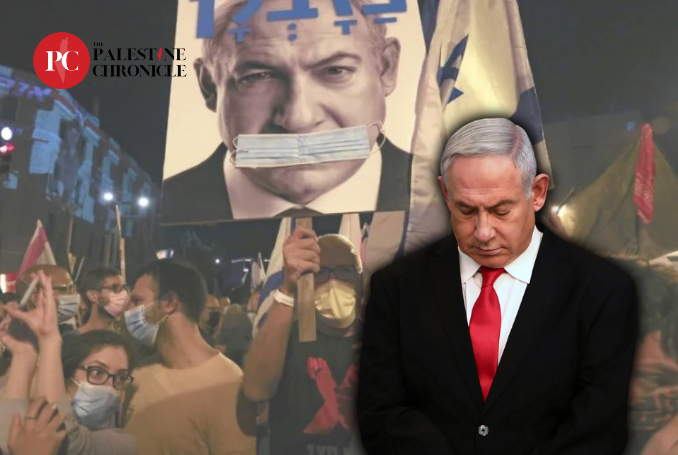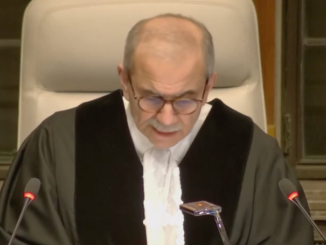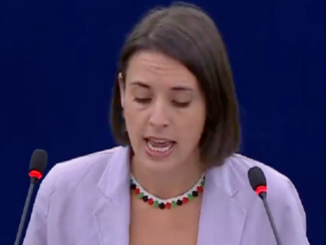
A general strike declared on September 2 by the Israeli Histadrut Union marked another step in the mobilization of Israel’s citizens against the regime of Benjamin Netanyahu.
The protests that took over Tel Aviv and other cities demanded a prisoner exchange between Israel and the Palestinian Resistance and the resignation of the regime’s leader.
On the same day as the strike, a group of demonstrators went to the Prime Minister’s house and tore down the security fences, which had been erected precisely because of the increase in anti-Netanyahu protests in Israel.
The strike promised to affect airports, universities, hospitals and health facilities. Because of the corporatist policies applied by the state of Israel, the Histadrut Union concentrates around 90% of all workers in the occupied territory.
The mobilization marks a new step by Israeli society against the Netanyahu government.
The driving force behind this struggle is the prime minister’s failure to achieve victories in the war of aggression against Gaza, on which he can stand up and mobilize his own people.
Defeat On All Levels
The ten months of war have weakened the state of Israel in the economic, military and political fields.
Tel Aviv’s economy has even been downgraded by US-aligned credit agencies, such as Fitch Ratings – which reduced the state’s rating from A+ to A.
The Bank of Israel estimates that spending on the war between 2023-2025 could total U$ 55,6 billion.
The Zionist state’s armed forces and police continue to suffer casualties on the fronts in Gaza, the North (against Hezbollah) and even in the occupied West Bank, where a Palestinian operation killed three policemen on September 1.
Two days later, the commander of the Israeli army’s ground operations, Major General Tamir Yadai, resigned.
The president of the Histadrut Union himself, Arnon Bar-David, said that Israel is “on a downward spiral, and we don’t stop receiving body bags.”
Israel’s lies and underestimation of data can no longer hide its defeats.
In political terms, the institutional crisis in Israel is deepening as members of the government attack each other more and more openly.
On the same day that the strike was declared, Israel’s Defense Minister Yoav Gallant stated that Netanyahu’s policy of prioritizing the domination of the Philadelphia Corridor over the exchange of prisoners is a “moral disgrace”.
This whole scenario, of course, is driving the strikes and street protests in Israel, because they show that the Israeli government is far from reaching a military solution to the war and, with the government so divided, a political agreement is more difficult to consolidate.
All this prolongs Israel’s economic problems.
Ceasefire Sabotage
Another important point is that the residents of the occupied territory are increasingly realizing that Netanyahu doesn’t want a ceasefire agreement.
New evidence of this was the publication in the Israeli newspaper Yedioth Ahronoth of a report which showed that last July, the Israeli government prepared a document to deliberately boycott the ceasefire with the Palestinian National Resistance.
The document was prepared by Finance Minister Bezalel Smotrich, who assessed that Hamas leader Yahya Sinwar might accept the proposed agreement.
As a result, another document revising Israel’s position on the Philadelphia corridor and reopening other discussions was put on the table at short notice, bringing the discussions to an end.
Israel reported that Hamas didn’t want the deal, but now the truth has come out.
Worsening Image
The scenario of mobilizations is important because it represents a frustration to the growth in popularity that Netanyahu has enjoyed in recent months.
The prime minister has managed to partially reverse the demoralization by touting the assassinations of the leaders of Hezbollah and Hamas, Fouad Shukr and Ismail Haniyeh respectively, as victories, and using the operations of the United States and other powers against the Ansarallah movement in the Red Sea as propaganda.
The result was that if elections had been held on August 9, Netanyahu’s Likud party would have been the largest in the Knesset, a fact not seen since October 7, according to a poll by the Israeli newspaper Maariv.
Some recent events may have once again reversed this scenario, worsening Netanyahu’s image.
The first was the martyrdom operation carried out in Tel Aviv by groups such as Hamas and Palestinian Islamic Jihad, which exploded a truck bomb in the Israeli capital on August 18.
The second was Hamas’ quick choice of a new leader to replace Haniyeh, in a demonstration that the death of the former leader has not shaken the ranks of the movement.
The third, which is a reflection of the second, was the maintenance and even increase of Palestinian operations in the Gaza Strip and the West Bank.
The fourth was the new Ansarallah operations against oil tankers in the Red Sea over the last two weeks, which demoralized the US-Zionist propaganda about supposed successes in the region.
‘Political Management’
The Palestinian Resistance, for its part, operates on the scene with impeccable political management.
Al-Qassam Brigades spokesman Abu Obeida warned Israel on Monday about the costs of trying to rescue prisoners of war through military action.
“Following the Nuseirat incident, new instructions were issued to the fighters assigned to protect the prisoners on how to deal with them should the occupation army approach the place of detention,” Abu Obeida said in the statement.
He refers to the Israeli operation that rescued four prisoners of war in the town of Nuseirat, and makes it clear that situations like these will not happen again.
“Netanyahu and the occupying army are solely responsible for the deaths of the prisoners, as they deliberately obstructed any prisoner exchange agreement for petty interests, as well as intentionally killing dozens of them through direct air strikes,” he adds.
The statement is strong and has the potential to increase the protests in Tel Aviv, even more so with the evidence revealed by Yedioth Ahronoth that, in fact, the Israeli regime boycotted the agreements.
He concludes: “Netanyahu’s insistence on releasing the captives through military pressure instead of making a deal will mean their return to their families in coffins. Their families must choose: either dead or alive.”

– Enrico Di Gregorio is a Brazilian journalist. He currently writes for A Nova Democracia and contributed this article to The Palestine Chronicle.









Be the first to comment